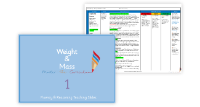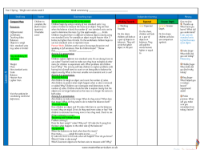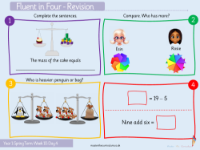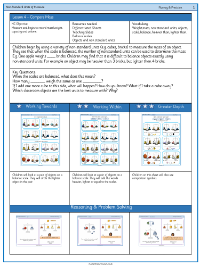Weight and volume - Compare mass - Presentation
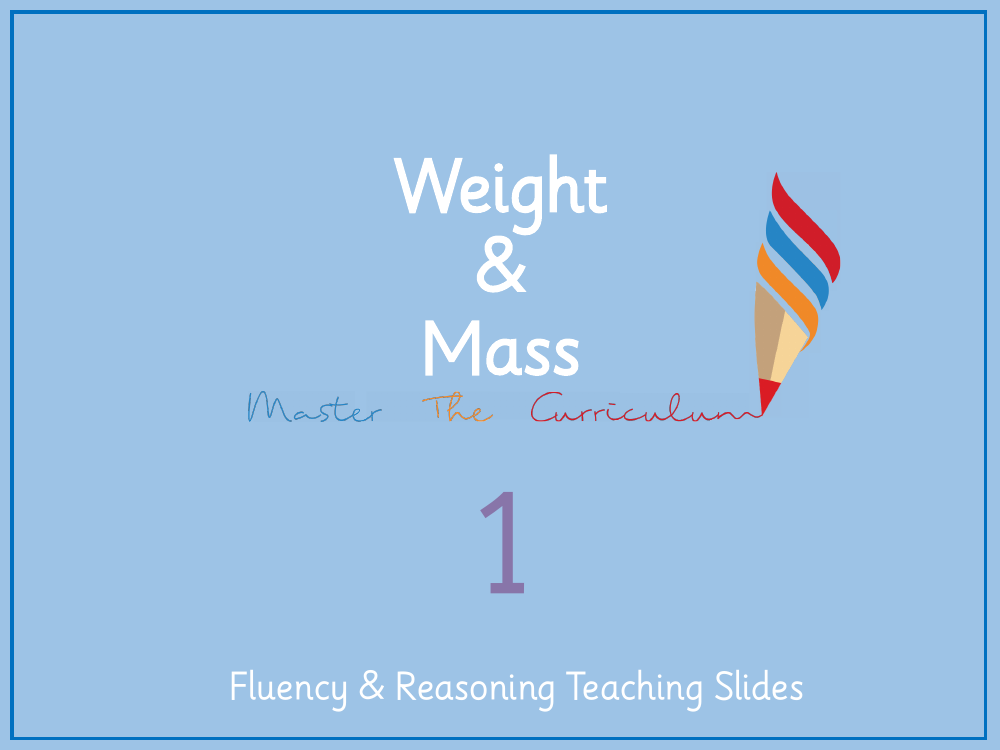
Maths Resource Description
In a series of engaging activities, students learn about comparing the mass of various objects using non-standard units such as cubes and pencils. The lesson encourages the use of comparative language such as 'heavier', 'lighter', and 'equal to'. A key point of discussion is the importance of using the same non-standard unit when comparing objects to ensure accuracy and consistency. Students are presented with tasks where they complete sentences by determining how many cubes equal the mass of items like cupcakes, grapes, bananas, and teddy bears, and whether one object is heavier or lighter than another.
The lesson continues with exercises that challenge students to order objects from heaviest to lightest and vice versa. They are required to use their reasoning skills to arrange items like balls, teddy bears, socks, cookies, peaches, and fidget spinners based on their mass represented by the number of pencils or cubes. Additionally, the lesson includes a reasoning component where students match clues to images, and make true or false statements about the mass of objects compared on balance scales. Independent work tasks further consolidate their understanding, asking them to compare the mass of objects and explain their reasoning, reinforcing the concept of mass comparison using non-standard measurement units.

